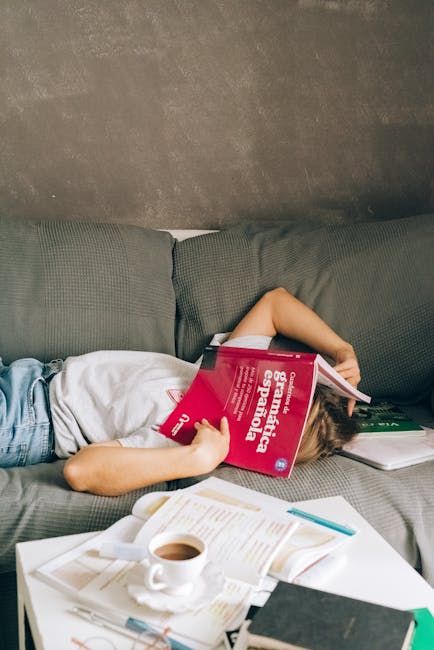
In a world of early school bells, endless homework, and constant digital pings, our teenagers are caught in a silent epidemic: chronic sleep deprivation. And for many, this isn’t just about feeling tired; it’s a direct fuel for the rising tide of teen anxiety. But what if the solution was as simple as hitting the snooze button, just a couple of times, on the weekend?
Emerging science suggests that those two extra hours of weekend sleep might be the unsung hero in the battle against adolescent anxiety. It’s not about laziness; it’s about giving their developing brains the crucial reset they desperately need.
The Anxious Teen: A Cycle of Sleep Deprivation
Teenagers today face unprecedented pressures. Academic demands, social media comparison, and a packed schedule often push bedtime later and later. Yet, their biological clocks (circadian rhythms) are naturally shifted to a later sleep-wake cycle, making early morning starts feel like torture. This mismatch creates a significant ‘sleep debt’ – the cumulative effect of not getting enough sleep night after night.
When teens are perpetually sleep-deprived, their brains are constantly on high alert. The amygdala, the brain’s fear center, becomes overactive, making them more prone to stress, irritability, and anxiety. Their prefrontal cortex, responsible for executive functions like decision-making and emotional regulation, struggles to function optimally. It’s a vicious cycle: anxiety makes it harder to sleep, and lack of sleep amplifies anxiety.
The Science of the Weekend Sleep-In: A Mini-Reset Button
While consistent sleep (8-10 hours per night) is always the gold standard, research indicates that even a modest sleep-in on weekends can offer significant psychological benefits. These additional 1-2 hours aren’t just for catching up on Zs; they’re for paying down that sleep debt, allowing the brain to perform critical restorative processes.
During these crucial extra hours, the brain gets a chance to better regulate neurotransmitters like serotonin and dopamine, which play vital roles in mood and well-being. It helps reduce levels of cortisol, the primary stress hormone, which often spikes in sleep-deprived individuals. Furthermore, improved sleep allows the prefrontal cortex to regain its full capacity, enhancing emotional control, reducing impulsive reactions, and fostering a greater sense of calm and resilience.
One study, for instance, found that teens who slept in on weekends experienced fewer depressive symptoms and better self-regulation compared to those who maintained strict schedules daily, hinting at the therapeutic power of flexibility in sleep patterns for adolescents.
How to Implement the Weekend Sleep-In Strategy
This isn’t an excuse for teens to sleep until noon every Saturday and Sunday, which can actually throw off their body clocks further. The key is moderation and consistency during the week, allowing for a gentle shift on weekends.
- Prioritize Weekday Sleep: Encourage consistent bedtimes and wake-up times during the school week, aiming for as close to 8-10 hours as possible.
- Allow a Gentle Weekend Shift: Let them sleep in for *no more than 2 extra hours* beyond their weekday wake-up time. For example, if they wake at 6:30 AM during the week, aim for an 8:30 AM wake-up on weekends.
- Create a Sleep Sanctuary: Ensure their bedroom is dark, cool, and quiet. Minimize screen time at least an hour before bed.
- Emphasize Winding Down: Encourage relaxing activities like reading, gentle stretching, or listening to calming music before sleep.
These small adjustments can make a profound difference. Teens who get enough sleep, even with a little weekend catch-up, report improved mood, better focus, reduced stress, and a greater ability to cope with daily challenges. They are less reactive, more resilient, and ultimately, less anxious.
Empowering Teens Through Sleep
Sleep is not a luxury; it’s a fundamental pillar of mental health, especially for developing adolescents. By understanding the science behind the weekend sleep-in, parents and teens can transform what seems like a simple indulgence into a powerful, accessible tool for managing anxiety and fostering overall well-being. So, on Saturday morning, encourage your teen to embrace those extra two hours – it might just be the most effective anxiety treatment they’ll ever find.
